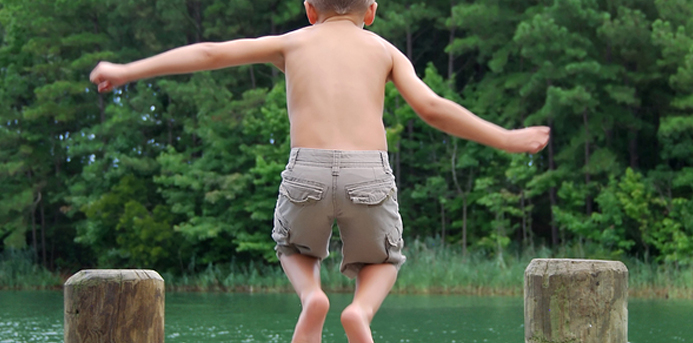Avoiding foods that trigger allergic reactions is a way of life for children with food allergies and the families who love them.
But many families wonder if their child’s savvy is enough to navigate sleepaway camp with new conditions, friends and foods. The answer, according to camp directors and experienced families, is yes—you just need to prepare ahead of time, when camp directors can focus on your child.
With approximately 5.9 million kids suffering from a food allergy, about one in every 13, it is a serious public health concern that camps should be able to handle, says Nancy Gregory, of Food Allergy Research & Education (FARE) in Virginia.
Two North Shore-based camps with grounds in Wisconsin, Beber Camp in Mukwonago and Camp Menominee in Eagle River, are peanut-free, employ medical staff on-site and work with parents to create food management plans.
How can you tell if an overnight camp is equipped to care for kids with food allergies? Use these guidelines created by FARE:
- Has the camp previously cared for kids with food allergies?
- Are counselors trained to administer an Epipen?
- Is there medical staff on-site?
- Is a hospital nearby?
Before choosing a camp, think about emergencies, and make sure it is within a reasonable distance from your home. Once you’ve selected a camp, do your due diligence:
- Review the menu with the head chef.
- Read all ingredients and make necessary substitutions.
- Find out how food is prepared to avoid cross-contamination.
- Examine the camp’s food allergy management plan and your food allergy action plan with the staff.
- Bring the plan to your child’s allergist for approval.
Tips for making sure your child doesn’t feel left out:
- Consult with other mothers. Denise Bunning, co-founder of the North Shore support groupMothers of Children Having Allergies (MOCHA), and Dr. Ruchi Gupta included a chapter on overnight camp in their book, “The Food Allergy Experience” (CreateSpace, 2012).
- Ask for the itinerary and find a way to include your child in every facet of camp. For Highland Park mom Bari Lichtman, it meant sending safe treats for her son to pick up at the canteen.
- Make sure your child eats with a friend, if separate seating is recommended at mealtimes.
- Assign a buddy who can recognize an allergic reaction.
- Once you’ve done your part and everyone knows the drill, all that’s left is to have fun!
For more camp content, check out our 2013 Digital Camp Guide.
Photo: Jumping off by Bigstock

